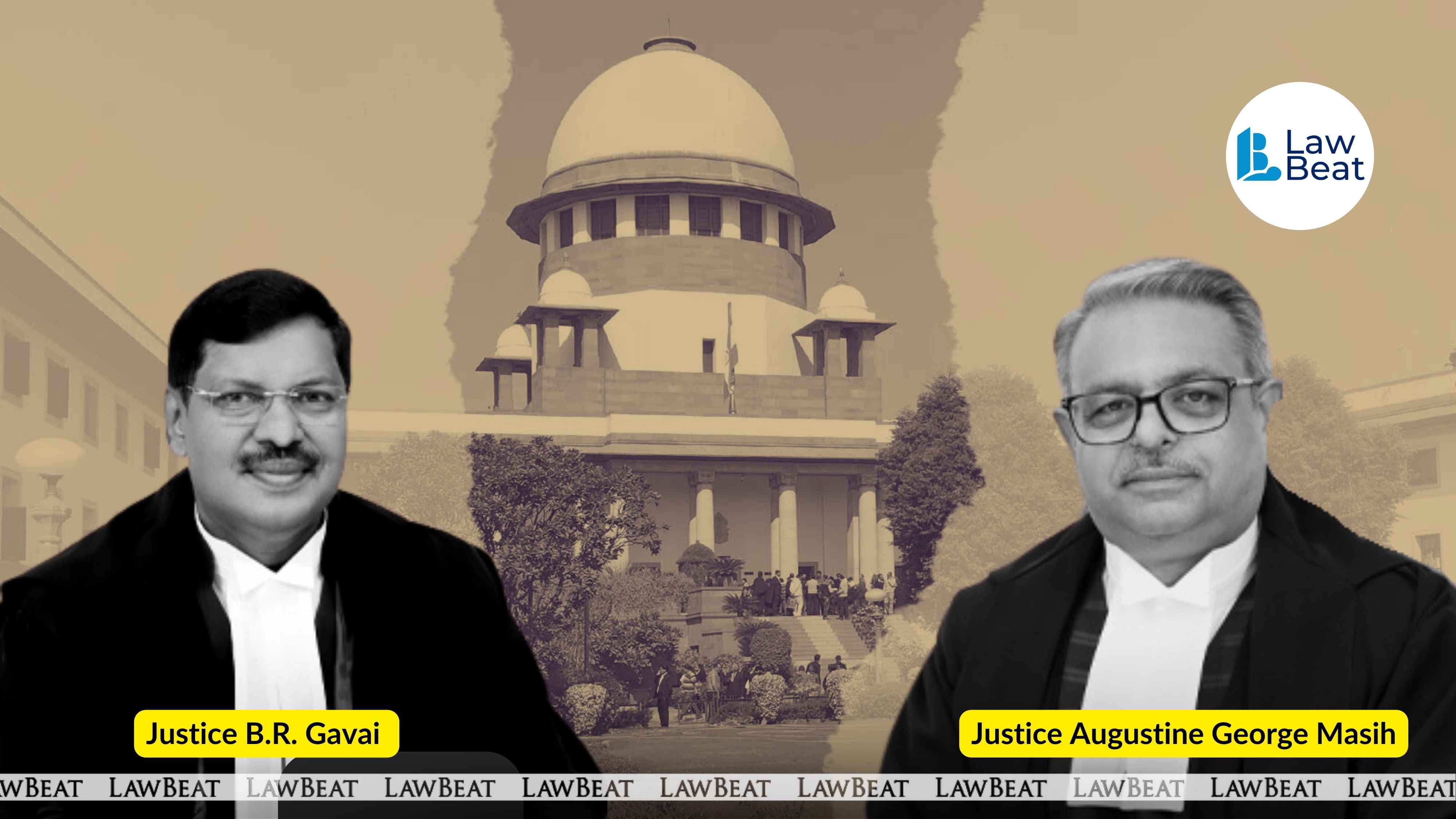'Enmity Alone Can’t Prove Guilt': SC Acquits Man in 1994 Murder Case

Citing inconsistencies in prosecution witnesses' testimonies, court granted the appellant the benefit of the doubt
The Supreme Court recently set aside conviction of a man in a 1994 murder case involving a history sheeter due to an old rivalry, stating that enmity is a double-edged weapon—while it provides motive, it also does not rule out the possibility of false implication.
A bench of Justices B.R. Gavai and Augustine George Masih allowed an appeal filed by Aslam alias Imran against the Madhya Pradesh High Court's judgment, which upheld his conviction and life sentence for stabbing Zahid Khan alias Guddu to death with a butcher knife in 1994.
"It is a settled law that enmity is a double-edged weapon. On one hand, it provides motive, on the other hand it also does not rule out the possibility of false implication. From the nature of the evidence placed on record by the prosecution, the possibility of the present appellant being falsely implicated on account of previous enmity cannot be ruled out. In our opinion, therefore, the appellant is entitled to benefit of doubt," the bench said.
The incident took place at noon on August 22, 1994, and the FIR was lodged at Omti police station in Jabalpur based on a complaint by Shahid Khan, the brother of the deceased. According to the prosecution, at around 12:30 PM, an abusive quarrel broke out on the road between the accused-appellant, Aslam alias Imran, and the deceased in an area called “Naya Mohalla.” The accused then attacked the deceased with a butcher knife, causing multiple injuries to his hands and thighs and a deep wound on his neck, leading to significant blood loss. The deceased succumbed to his injuries at around 2:10 PM in the hospital.
Court noted that the evidence on record showed the deceased, Guddu, was a history-sheeter facing multiple criminal cases, including an attempt-to-murder case. The prosecution witnesses also testified that there was prior enmity between the deceased and the appellant.
By its judgment and order dated November 21, 1995, the trial court convicted the appellant under Section 302 of the IPC and sentenced him to life imprisonment. The high court, in its judgment dated September 26, 2024, upheld the trial court's decision and directed the appellant, who was out on bail, to surrender before the trial court to serve the remaining part of his sentence.
The prosecution primarily relied on the testimonies of Shahid Khan, the brother of the deceased, Rassu, Asif Khan, and Saiyad Wahid Ali.
However, the court pointed out several factors casting serious doubt on the credibility of the prosecution witnesses: the absence of bloodstains on the clothes of witnesses who carried the deceased to the hospital; their failure to inform either the police station or a police constable standing about 50 steps from the scene of the incident; contradictions in their statements regarding their presence at the scene; their failure to mention the cause of death in the MLC papers despite claiming to know who inflicted the injuries; and the delay in recording their statements despite their availability.
Examining Shahid’s evidence, the bench noted that in his cross-examination, he admitted that the deceased Guddu’s hand and head were on his shoulder while being taken to the hospital immediately after the attack. He also admitted that a lot of blood was oozing from Guddu’s body. However, he stated that although he was wearing a vest, there was no blood on it. He further testified that Guddu’s blood did not fall on Asif Khan, another prosecution witness who accompanied them.
The court observed that although Shahid claimed to have witnessed the incident, he did not report it either at the police station, which was nearby, or at Victoria Hospital. His testimony contradicted that of Abbi, who stated that when he saw Guddu injured, Shahid was not present and only arrived after being called by Mukhtar.
"A perusal of the testimony of Shahid when compared with the testimony of Abbi, clearly casts a doubt on the truthfulness of this witness. If the deceased Guddu was carried by Shahid and if the hand and head of the deceased Guddu were on his shoulder, then the absence of bloodstains on his clothes creates a serious doubt about the veracity of his version. Apart from that, he has clearly admitted that though he had seen the incident, he had not narrated about the same either to the Police Station or at Victoria Hospital," the bench opined.
"No doubt that merely a witness being an interested witness cannot be a ground for discarding his testimony. However, the evidence of such a witness is required to be scrutinized with greater caution and circumspection. From the perusal of the evidence of Shahid, we do not find that the testimony of this witness is the one which would inspire confidence," the bench said.
As a result, the court allowed the appeal, set aside the high court's judgment of September 26, 2024, and the trial court's decision of November 21, 1995, and acquitted the appellant, who was already on bail, of all charges.
Case Title: Aslam alias Imran Vs The State of Madhya Pradesh
